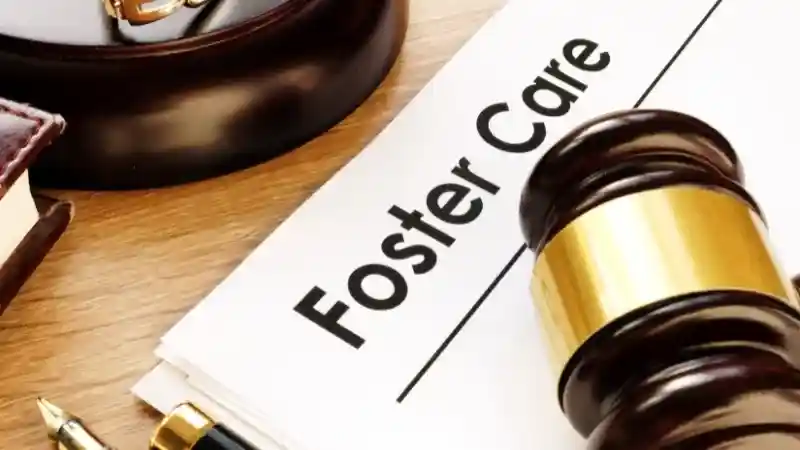Foster care plays a crucial role in providing stable and nurturing environments for children who are unable to live with their biological parents. It offers them a chance to grow, heal, and thrive in a loving home. Becoming a foster parent involves a comprehensive assessment of eligibility, including consideration of criminal background. In particular, the question arises: can felons be foster parents?
Let’s examine the factors that could impact whether or not felons can foster children or face rejection.
Can Felons Be Foster Parents?
When children are unable to live with their birth parents due to various reasons, foster care provides them with a temporary home and supportive environment. Foster care aims to ensure the safety, well-being, and healthy development of these children. Foster care allows these children to grow and develop while awaiting a more permanent living arrangement, such as adoption or reunification with their biological families.
Role And Responsibilities Of Foster Parents
Foster parents are individuals or couples who open their hearts and homes to children in need, offering them love, care, and stability during their time in foster care. They play a pivotal role in a child’s life, acting as temporary caregivers, mentors, and advocates for their well-being. Foster parents provide the nurturing environment children require, ensuring their physical, emotional, and social needs are met. They collaborate with social workers, healthcare providers, and schools to support the child’s overall development and help facilitate reunification or adoption.
Legal Requirements For Foster Parenting

Becoming a foster parent involves navigating a legal and regulatory framework designed to ensure the safety and well-being of children in the foster care system. The specific requirements vary by jurisdiction, but generally, they encompass areas such as
- Age
- Residency
- Income
- Health
- Background checks
These requirements aim to evaluate an individual or couple’s suitability and capability to provide a secure and nurturing environment for a child in need.
Licensing And Certification Process
To become a foster parent, prospective caregivers typically need to go through a licensing or certification process. This process involves
- Attending training sessions
- Undergoing a comprehensive home study
- Meeting specific guidelines set by child welfare agencies.
Licensing or certification ensures that foster parents possess the necessary skills, knowledge, and commitment to meet the unique needs of children in foster care. It also promotes accountability and quality assurance within the foster care system.
Crimes That Hinder Folks From Becoming Foster Parents
Felony convictions can present obstacles for individuals seeking to become foster parents. While the specific rules and regulations vary across jurisdictions, many states have restrictions or limitations regarding felony convictions. These restrictions aim to protect the well-being and safety of children in foster care by carefully evaluating the backgrounds of potential foster parents.
Felony convictions related to
- Child abuse
- Domestic violence
- Neglect
- Drug dealing
- Sex offenses such as rape
- Violent crimes like murder
Offenses involving violence or crimes against children generally disqualify individuals from becoming foster parents.
Note that each case is evaluated on an individual basis, considering factors such as the nature of the offense, the amount of time that has passed since the conviction, and the individual’s efforts at rehabilitation. Social workers and child welfare agencies take these factors into account when determining eligibility.
It is possible for individuals with felony convictions to still become foster parents if they can demonstrate rehabilitation and a commitment to providing a safe and nurturing environment for children.
Know about:
- Juvenile conviction
- What Is The Highest Felony One Can Commit
- Political positions felons can run for
- Jobs Felons Can’t Do
Rehabilitation And Its Significance In The Foster Parenting Process
Rehabilitation plays a crucial role in the foster parenting process, especially for individuals with felony convictions. It showcases a person’s ability to acknowledge and learn from past mistakes, demonstrating growth and a commitment to positive change. By actively participating in rehabilitative programs, seeking counseling or therapy, and making efforts to lead a law-abiding life, individuals with felony convictions can highlight their suitability as foster parents. Rehabilitation shows that they have taken steps to become responsible, accountable, and capable caregivers.
Rehab efforts can positively influence eligibility determinations for prospective foster parents with felony convictions. These efforts include completing educational programs, obtaining stable employment, maintaining positive relationships, and demonstrating continued personal growth. By showing a genuine commitment to personal development and providing a safe and nurturing environment for children, individuals with felony convictions can potentially overcome the barriers they face and become valuable foster parents.
Financial Challenges And Limitations For Felons As Adoptive Parents
One of the significant challenges felons face when pursuing foster parenting is financial limitations. With a criminal record, it can be challenging to find stable employment or secure adequate housing. This can restrict their ability to provide for the additional expenses associated with foster care, such as healthcare and education. However, by working closely with support networks and exploring financial assistance programs, felons can navigate these challenges and ensure the financial stability required to offer a nurturing home.
Benefits And Drawbacks Of Allowing Felons As Foster Parents

There are advantages and disadvantages to permitting individuals with criminal records to serve as foster parents. On one hand, it provides opportunities for rehabilitation and second chances, allowing individuals to rebuild their lives while positively impacting the lives of vulnerable children. On the other hand, safety and stability concerns must be carefully considered. Striking a balance between the need for child protection and the potential for felons to make a difference is crucial.
In conclusion, while having a felony conviction may present challenges, it is not an absolute barrier to becoming a foster parent. Seeking legal advice, demonstrating personal growth and responsibility, engaging in rehabilitation programs, and cultivating community support are crucial steps in increasing the likelihood of approval.